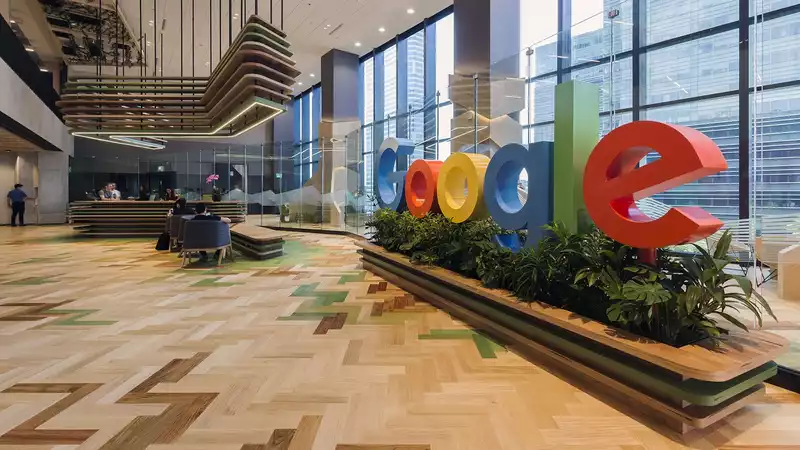The U.S. Department of Justice, along with 11 U.S. states, sued Google for antitrust violations. Google "maintains and abuses its monopoly power in general search services through anticompetitive and exclusionary sales agreements that fix the preset default location of search access points in browsers, mobile devices, computers, and other devices. [Twenty years ago, Google was the darling of Silicon Valley as a scrappy startup with innovative ways to search the emerging Internet. That Google has long since disappeared," the lawsuit states (via NPR). "Google has long used anticompetitive tactics to maintain and expand its monopoly in the markets for general search services, search advertising, and general search text ads, the foundation of its empire. [Absent a court order, Google will continue to implement its anti-competitive strategy, paralyzing the competitive process, reducing consumer choice, and stifling innovation. ...... It is time to stop Google's anti-competitive practices and restore competition for American consumers, advertisers, and all businesses that currently depend on the Internet economy.
U.S. Attorney General William Barr said in a statement that the Department of Justice Antitrust Division has spent the past 16 months gathering evidence showing that Google does not compete on merit, but rather uses its monopoly power and profits to control online search capabilities. Other search engines still exist, but as it stands, "no one can challenge Google's dominance in search and search advertising," Barr said.
Interestingly, Barr referred to the Justice Department's 1998 lawsuit against Microsoft, which "paved the way for a new wave of innovative high-tech companies" including Google. For example, UNC School of Law professor Andrew Chin wrote that the settlement "created special antitrust immunity to license Windows and other 'platform software' under contract terms that destroy freedom of competition."
Nevertheless, Barr said the settlement has created a more competitive environment and opened the door for Google's creation and growth. But now that it is the dominant player in the market, Google, like Microsoft, "relies on anti-competitive practices."
"If we let Google continue its anti-competitive practices, we will lose the next wave of innovation and Americans may not benefit from the 'next Google. Now is the time to bring competition back to this important industry," Barr said.
Google, unsurprisingly, described the lawsuit as "deeply flawed" and said in a blog post that people use Google for web searches "because they choose to, not because they are forced to."
"This lawsuit does nothing to help consumers. Instead, it will support artificially low-quality search alternatives, raise the price of cell phones, and make it harder for people to get the search services they want to use," wrote Kent Walker, Google's senior vice president of global affairs. Google's agreements with handset makers and carriers, including Apple, are no different than the agreements that many other companies have traditionally used to distribute their software. Other search engines, including Microsoft's Bing, are competing with us over these agreements. And our agreements have repeatedly passed antitrust scrutiny."
Walker also argued that Google competes not only with other general search engines, but also with very different platforms such as Twitter, Kayak, Expedia, Instagram, Pinterest, and Amazon, each of which deliver specific types of information and products directly to users He argued that they deliver to the He also cited the example of Mozilla, which signed a deal with Yahoo in 2014 to become the default search engine for Firefox. He added that it is also "trivially" easy to switch to a non-Google search engine on Google's Chrome browser.
"We understand that our success comes with scrutiny, but we stand our ground. America's antitrust laws are designed to foster innovation and help consumers. We are confident that the Court will conclude that this case is not consistent with either the facts or the law."
The lawsuit seeks a ruling that Google acted unlawfully to maintain its monopoly, an order preventing the continuation of its anticompetitive practices, and, and this is the main point, "to provide the structural relief necessary to cure the anticompetitive harm," which means the forced sale of some of Google's assets and property, and possibly in some cases, seeking to dissolve the company. But it could take years to reach some kind of resolution: the lawsuit against Microsoft that Barr mentions began in 1998 and was not settled until late 2001; the lawsuit against Google began in 1998 and was not settled until late 2001; and the lawsuit against Google began in 1998 and was not settled until late 2001.
.

Comments